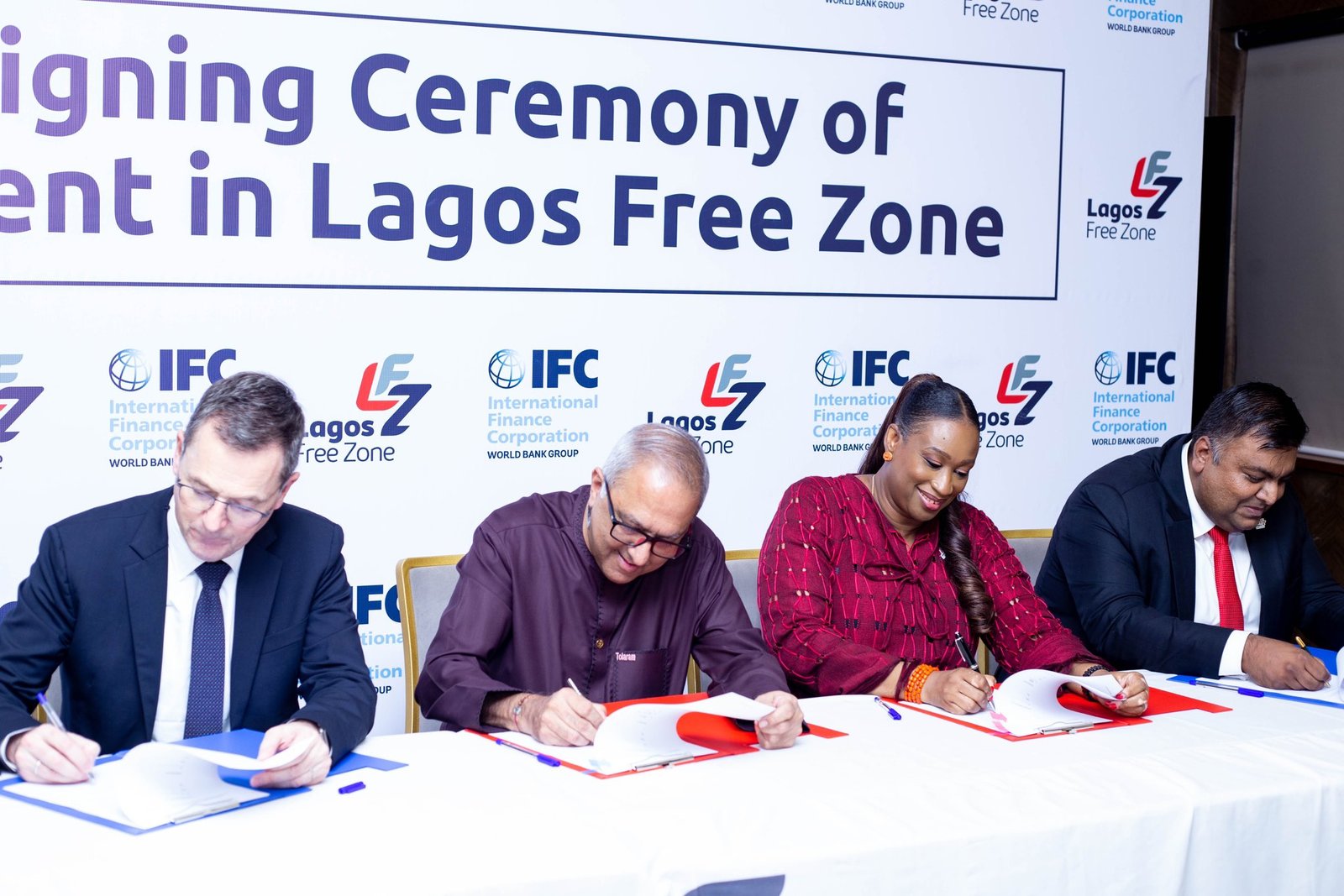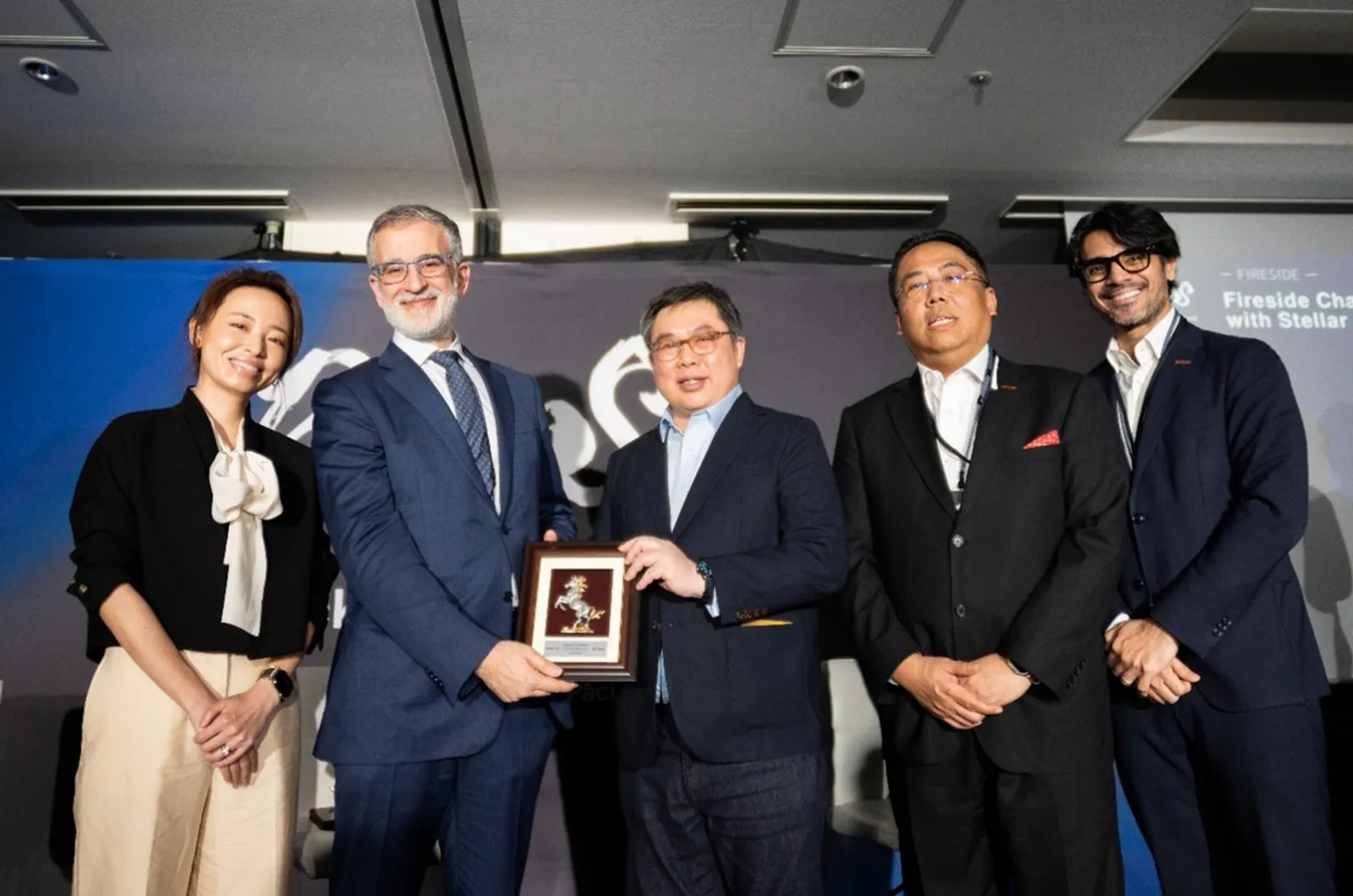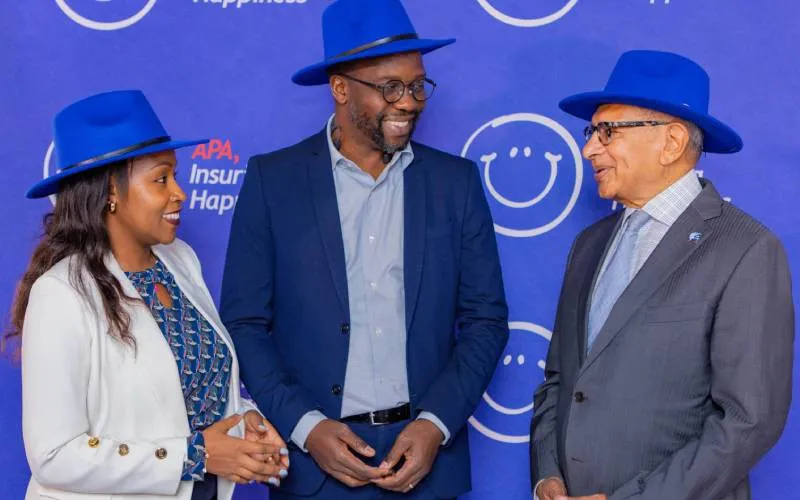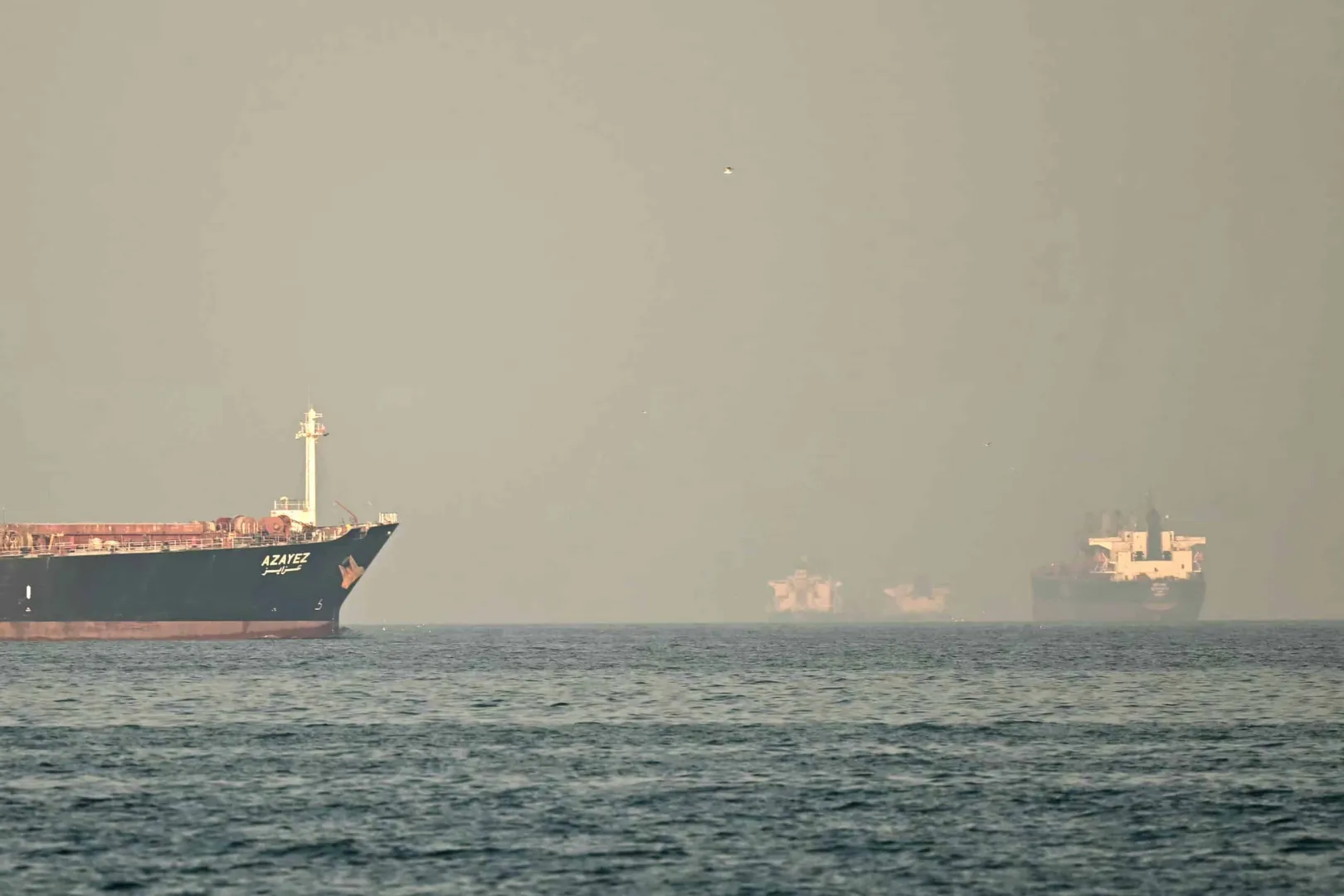In a significant boost to Nigeria’s economic transformation agenda, President Bola Tinubu has commended the International Finance Corporation (IFC) for its recent $50 million equity investment in the Lagos Free Trade Zone. The investment, which falls under the Tolaram initiative, is set to further strengthen Nigeria’s industrial base, enhance trade efficiency, and attract foreign direct investment (FDI).
Tinubu emphasized that such strategic partnerships reaffirm Nigeria’s position as a prime destination for global investors and contribute to the country’s long-term economic growth. In a statement signed by his Special Adviser on Information and Strategy, Bayo Onanuga, Tinubu described the investment as a clear indication of global financial institutions’ trust in Nigeria’s economic direction under his administration.
“This investment by the IFC not only strengthens Nigeria’s industrial base but also demonstrates the growing confidence of international investors in our economic policies,” Tinubu stated.
Lagos Free Trade Zone: A Strategic Investment Hub
The Lagos Free Trade Zone (LFZ), a private special economic zone strategically integrated with the Lekki Deep Sea Port, plays a critical role in enhancing Nigeria’s competitiveness in global trade. Spanning approximately 860 hectares, the zone is designed to provide an efficient and business-friendly environment that facilitates seamless import and export operations.
The IFC’s $50 million investment will primarily support land development, industrial expansion, and logistics infrastructure within the LFZ. The goal is to establish a fully integrated economic zone that aligns with Nigeria’s broader strategy of economic diversification and industrialization.
Key objectives of the Lagos Free Trade Zone initiative include:
- Boosting Foreign Direct Investment (FDI): By offering incentives such as tax breaks, duty-free imports, and streamlined customs procedures, the LFZ is attracting multinational companies looking to establish a presence in Nigeria.
- Enhancing Export Capabilities: With direct access to the Lekki Deep Sea Port, businesses within the zone can efficiently export goods to global markets, thereby reducing logistics costs and improving competitiveness.
- Job Creation and Economic Growth: The expansion of the zone is expected to generate thousands of jobs, both directly and indirectly, through industrial activity, logistics, and trade services.
- Improving Nigeria’s Regional Trade Position: The LFZ is part of Nigeria’s strategy to position itself as a leading trade hub in West Africa, taking advantage of the African Continental Free Trade Area (AfCFTA).
IFC’s Commitment to Nigeria’s Economic Growth
The International Finance Corporation (IFC), a member of the World Bank Group, has been a key partner in Nigeria’s economic development efforts. Its investment in the Lagos Free Trade Zone is part of a broader commitment to supporting infrastructure development, industrialization, and energy security in the country.
Beyond the $50 million investment in the LFZ, the IFC has also allocated $70 million to Nigeria’s power sector initiatives. These funds aim to enhance the country’s energy security, a critical factor in driving industrialization and ensuring a stable business environment.
“We value the IFC’s commitment to Nigeria’s economic progress and look forward to deeper engagements that will drive large-scale infrastructure projects, strengthen our industrial base, and create thousands of jobs for Nigerians,” Tinubu said.
A Track Record of Investment
The IFC has been actively involved in Nigeria’s economic landscape for years. Some of its notable contributions include:
- Investments in Nigeria’s Banking Sector: The IFC has supported Nigerian banks with funding to expand lending to small and medium-sized enterprises (SMEs), boosting financial inclusion and economic diversification.
- Infrastructure Development: Beyond the Lagos Free Trade Zone, the IFC has invested in infrastructure projects that enhance transportation, energy, and digital connectivity across Nigeria.
- Support for the Private Sector: The IFC has consistently partnered with Nigerian businesses to provide funding, technical assistance, and advisory services, helping them scale and compete in regional and global markets.
Tolaram’s Expanding Presence in Nigeria
The investment in the Lagos Free Trade Zone falls under the Tolaram initiative, a multinational group with a long-standing commitment to Nigeria’s economic development. Tolaram has played a significant role in driving industrialization, consumer goods manufacturing, and infrastructure development in the country.
One of the company’s most notable moves was its acquisition of Guinness Nigeria last year, signaling its confidence in the Nigerian consumer market. With a growing footprint across various sectors, Tolaram is positioning itself as a key player in Nigeria’s industrial transformation.
Tolaram’s Contributions to Nigeria’s Economy
- Consumer Goods and Manufacturing: Tolaram is known for its successful operations in the FMCG (fast-moving consumer goods) sector, particularly with Indomie instant noodles, a household staple in Nigeria.
- Industrial and Special Economic Zones: The company has invested heavily in industrial parks, including the Lagos Free Trade Zone, to support large-scale manufacturing and trade.
- Infrastructure Development: Tolaram played a crucial role in the development of the Lekki Deep Sea Port, a project expected to decongest Lagos’ Apapa port and improve Nigeria’s trade logistics.
Lekki Deep Sea Port: A Game-Changer for Trade
The integration of the Lagos Free Trade Zone with the Lekki Deep Sea Port is expected to transform Nigeria’s trade logistics landscape. The deep-sea port, one of the largest in West Africa, provides a modern and efficient gateway for imports and exports.
Key Features and Benefits of the Lekki Deep Sea Port:
- Increased Cargo Handling Capacity: The port is equipped to handle larger vessels, reducing congestion at Nigeria’s existing ports and improving trade efficiency.
- Reduced Logistics Costs: Businesses operating in the LFZ will benefit from faster and more cost-effective shipping processes.
- Enhanced Competitiveness: The port strengthens Nigeria’s position as a regional trade hub, attracting global shipping lines and logistics companies.
Nigeria’s Economic Policies and Investment Climate
President Tinubu has reiterated his administration’s commitment to creating a business-friendly environment that attracts large-scale investments across key sectors. Since taking office, he has implemented several policy measures aimed at improving economic stability and investor confidence.
Key Economic Reforms Under Tinubu’s Administration:
- Foreign Exchange Market Reforms: The government has taken steps to unify exchange rates, making the foreign exchange market more transparent and attractive to investors.
- Fuel Subsidy Removal: The elimination of fuel subsidies has allowed for better allocation of resources to critical infrastructure and social programs.
- Ease of Doing Business Initiatives: Regulatory reforms have been introduced to simplify business registration, improve access to credit, and enhance contract enforcement.
- Public-Private Partnerships (PPP): The administration is actively engaging the private sector in infrastructure development projects to boost economic growth.
Challenges and Future Prospects
While Nigeria’s investment landscape is improving, challenges remain. Infrastructure deficits, inconsistent policy implementation, and security concerns continue to pose risks for investors. However, the government is actively addressing these issues through strategic policy adjustments and increased engagement with global financial institutions.
The IFC’s investment in the Lagos Free Trade Zone signals a vote of confidence in Nigeria’s economic potential. As the country continues to implement reforms and attract foreign investments, the prospects for sustained industrial growth and economic diversification remain strong.
Conclusion
The $50 million investment by the IFC in the Lagos Free Trade Zone is a milestone in Nigeria’s journey toward economic transformation. With the expansion of industrial and logistics infrastructure, Nigeria is poised to become a key player in regional and global trade.
Under President Tinubu’s leadership, Nigeria is making strides in fostering a business-friendly environment, strengthening investor confidence, and driving industrial growth. As global financial institutions like the IFC continue to invest in Nigeria, the country’s vision of becoming West Africa’s premier trade and investment hub is steadily becoming a reality.
Ready to take your career to the next level? Join our dynamic courses: ACCA, HESI A2, ATI TEAS 7 , HESI EXIT , NCLEX – RN and NCLEX – PN, Financial Literacy!🌟 Dive into a world of opportunities and empower yourself for success. Explore more at Serrari Ed and start your exciting journey today! ✨
photo source: Google
By: Montel Kamau
Serrari Financial Analyst
13th February, 2025
Article, Financial and News Disclaimer
The Value of a Financial Advisor
While this article offers valuable insights, it is essential to recognize that personal finance can be highly complex and unique to each individual. A financial advisor provides professional expertise and personalized guidance to help you make well-informed decisions tailored to your specific circumstances and goals.
Beyond offering knowledge, a financial advisor serves as a trusted partner to help you stay disciplined, avoid common pitfalls, and remain focused on your long-term objectives. Their perspective and experience can complement your own efforts, enhancing your financial well-being and ensuring a more confident approach to managing your finances.
Disclaimer: This article is for informational purposes only and does not constitute financial advice. Readers are encouraged to consult a licensed financial advisor to obtain guidance specific to their financial situation.
Article and News Disclaimer
The information provided on www.serrarigroup.com is for general informational purposes only. While we strive to keep the information up to date and accurate, we make no representations or warranties of any kind, express or implied, about the completeness, accuracy, reliability, suitability, or availability with respect to the website or the information, products, services, or related graphics contained on the website for any purpose. Any reliance you place on such information is therefore strictly at your own risk.
www.serrarigroup.com is not responsible for any errors or omissions, or for the results obtained from the use of this information. All information on the website is provided on an as-is basis, with no guarantee of completeness, accuracy, timeliness, or of the results obtained from the use of this information, and without warranty of any kind, express or implied, including but not limited to warranties of performance, merchantability, and fitness for a particular purpose.
In no event will www.serrarigroup.com be liable to you or anyone else for any decision made or action taken in reliance on the information provided on the website or for any consequential, special, or similar damages, even if advised of the possibility of such damages.
The articles, news, and information presented on www.serrarigroup.com reflect the opinions of the respective authors and contributors and do not necessarily represent the views of the website or its management. Any views or opinions expressed are solely those of the individual authors and do not represent the website's views or opinions as a whole.
The content on www.serrarigroup.com may include links to external websites, which are provided for convenience and informational purposes only. We have no control over the nature, content, and availability of those sites. The inclusion of any links does not necessarily imply a recommendation or endorsement of the views expressed within them.
Every effort is made to keep the website up and running smoothly. However, www.serrarigroup.com takes no responsibility for, and will not be liable for, the website being temporarily unavailable due to technical issues beyond our control.
Please note that laws, regulations, and information can change rapidly, and we advise you to conduct further research and seek professional advice when necessary.
By using www.serrarigroup.com, you agree to this disclaimer and its terms. If you do not agree with this disclaimer, please do not use the website.
www.serrarigroup.com, reserves the right to update, modify, or remove any part of this disclaimer without prior notice. It is your responsibility to review this disclaimer periodically for changes.
Serrari Group 2025
















